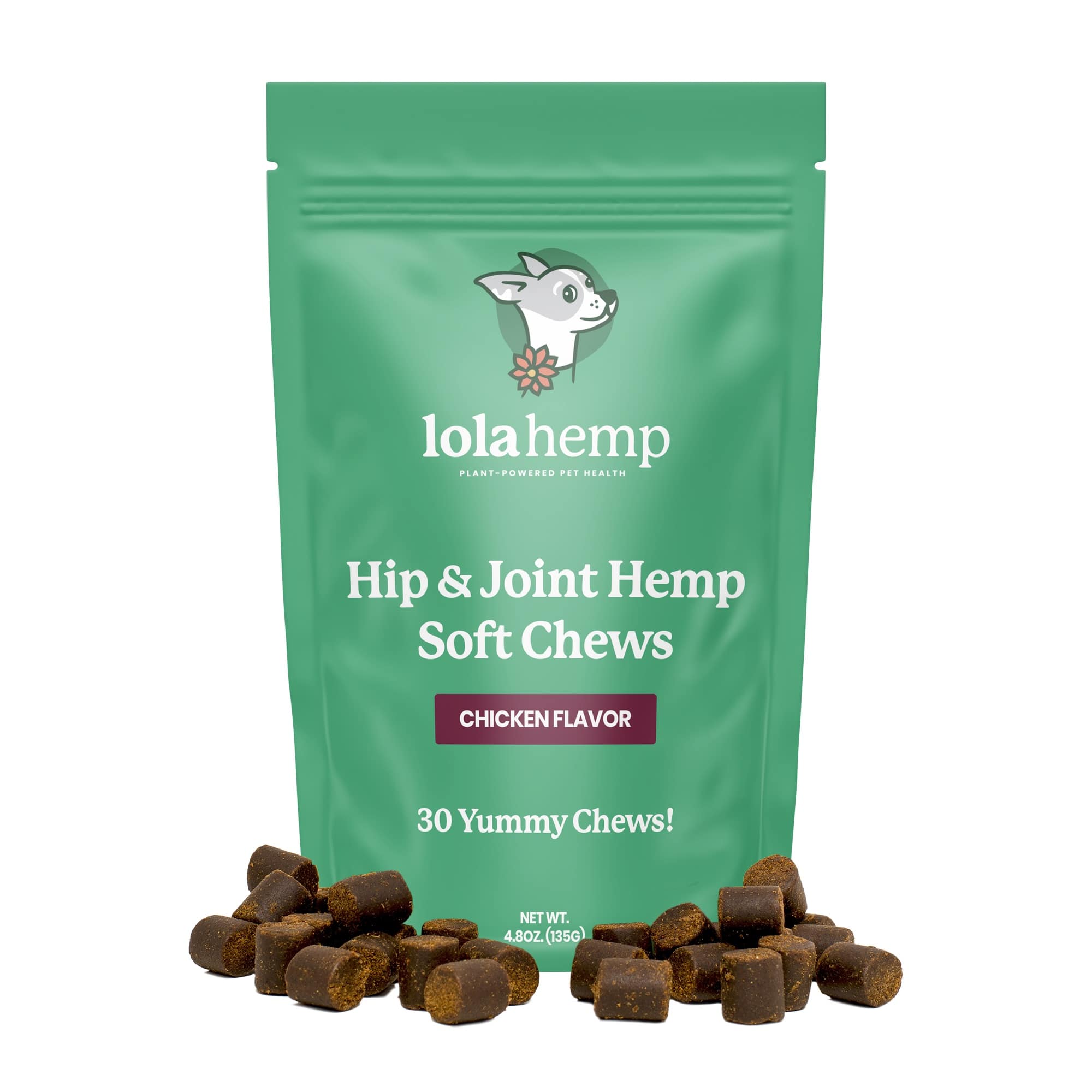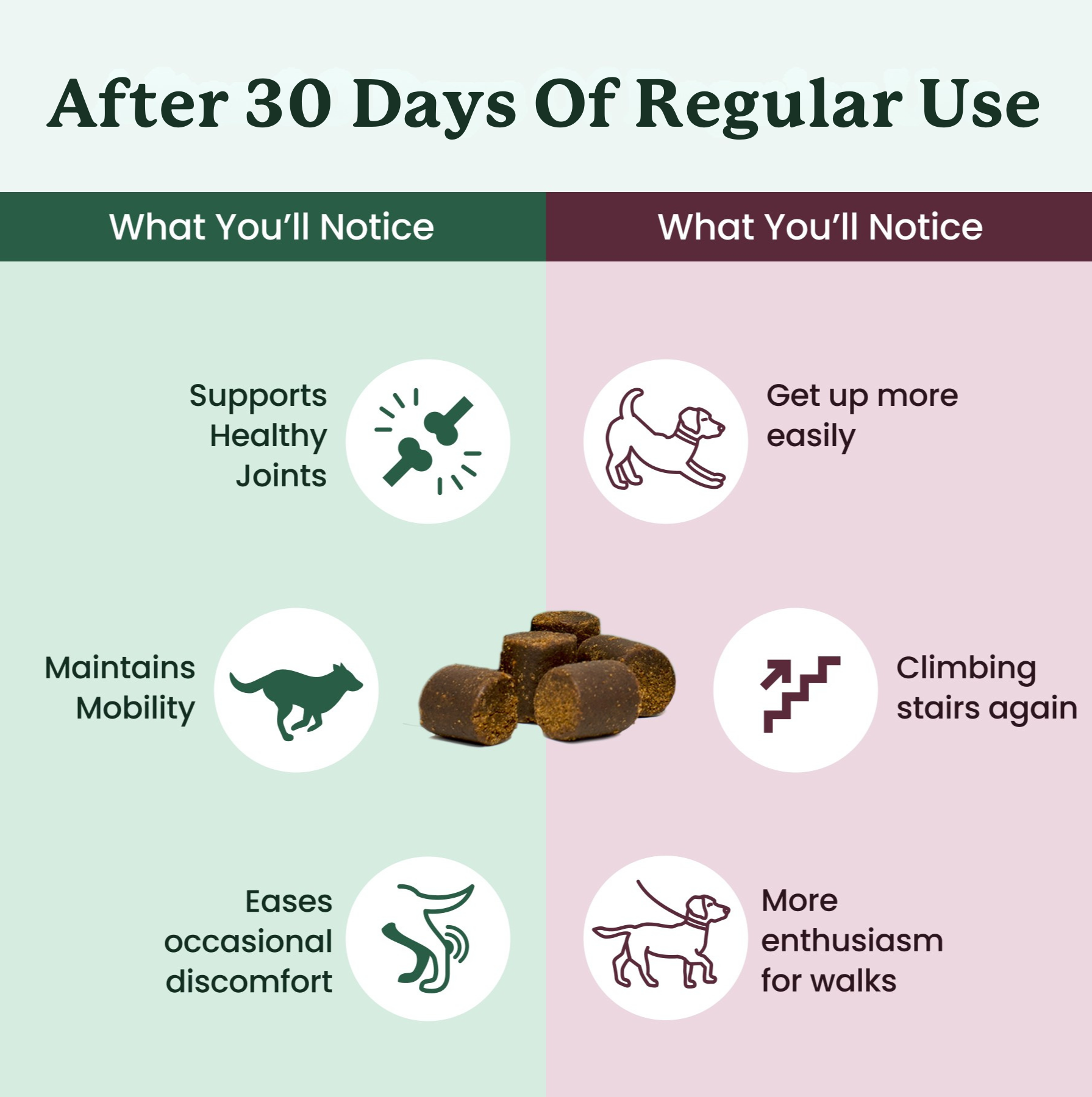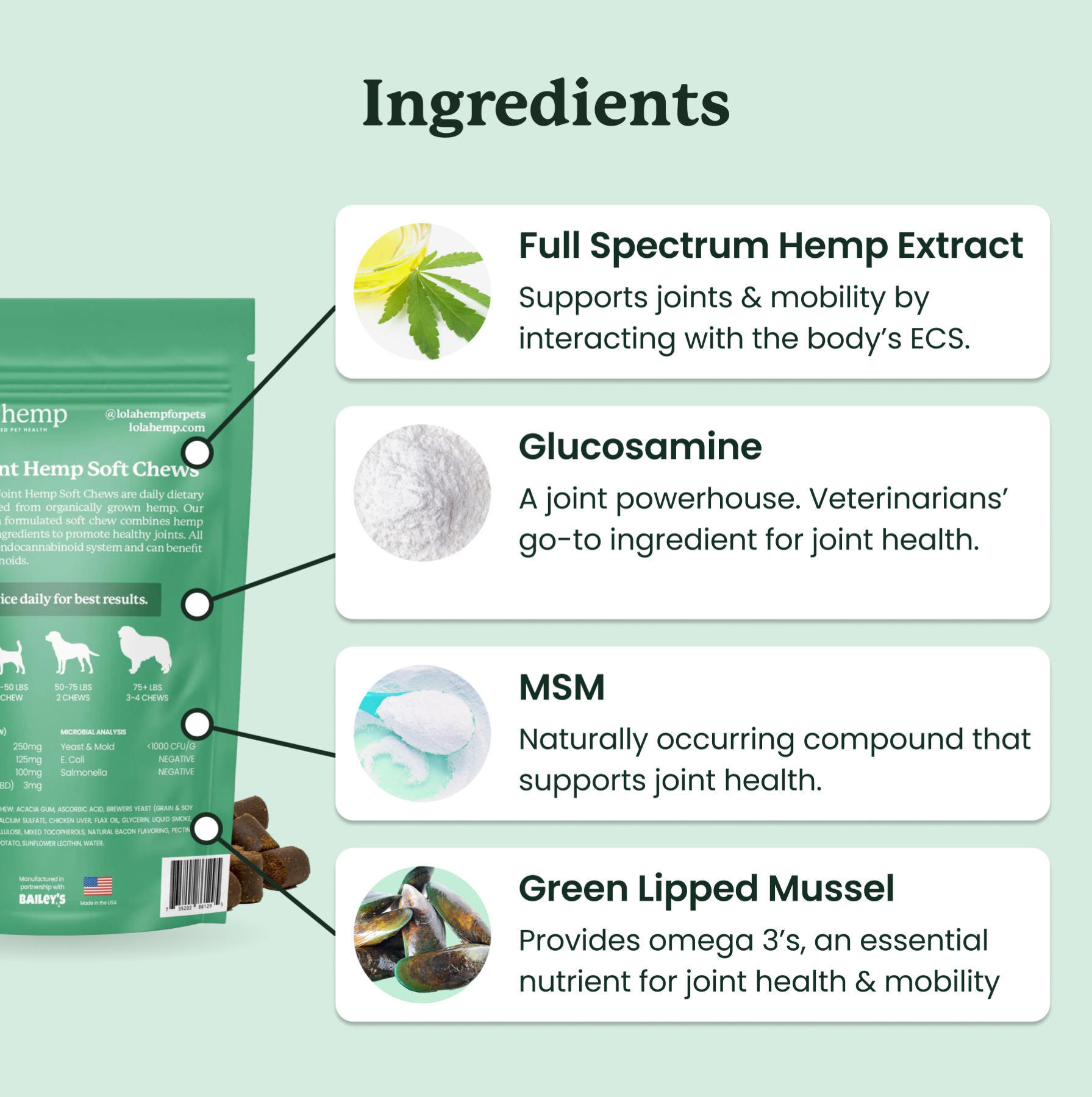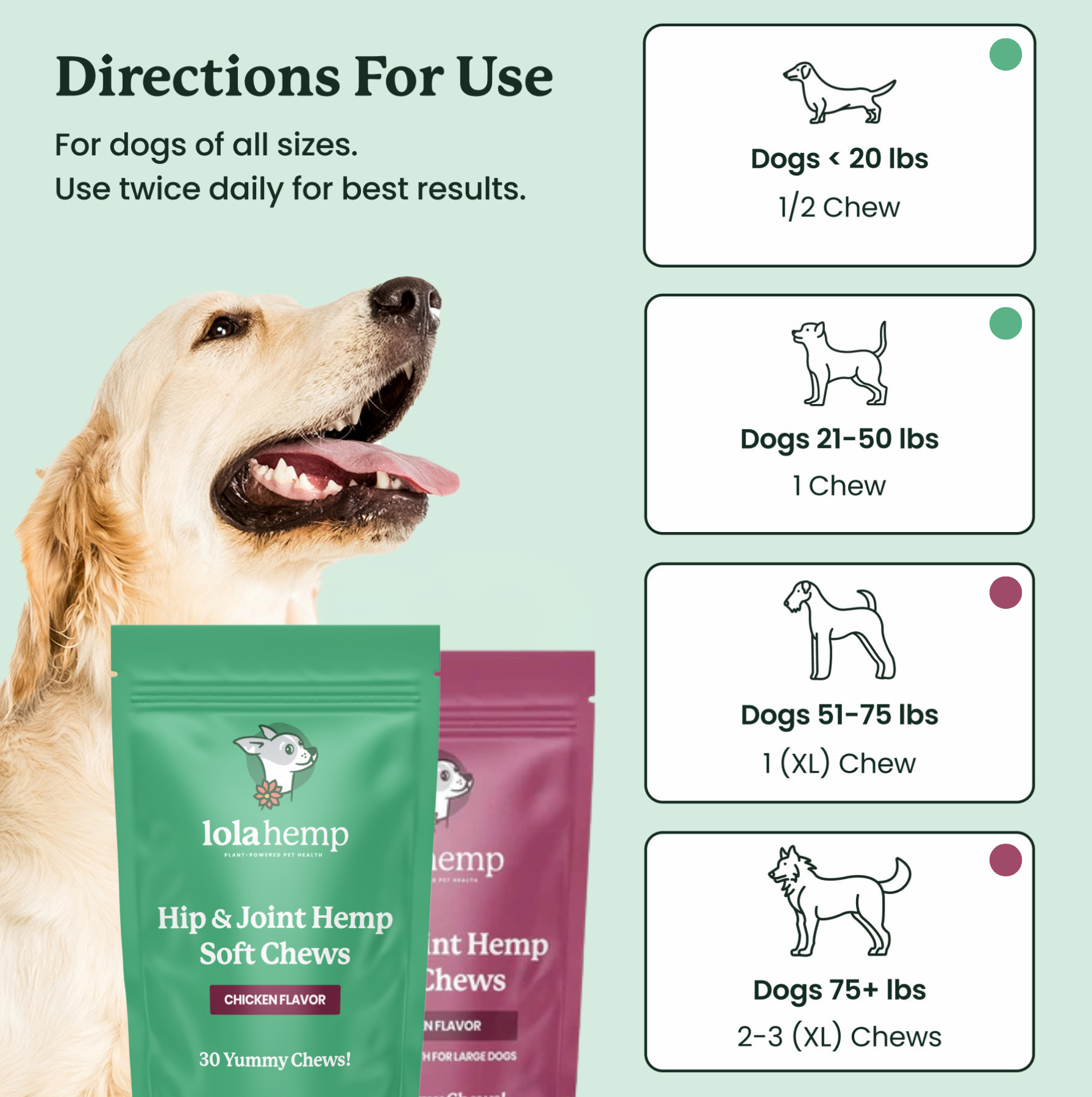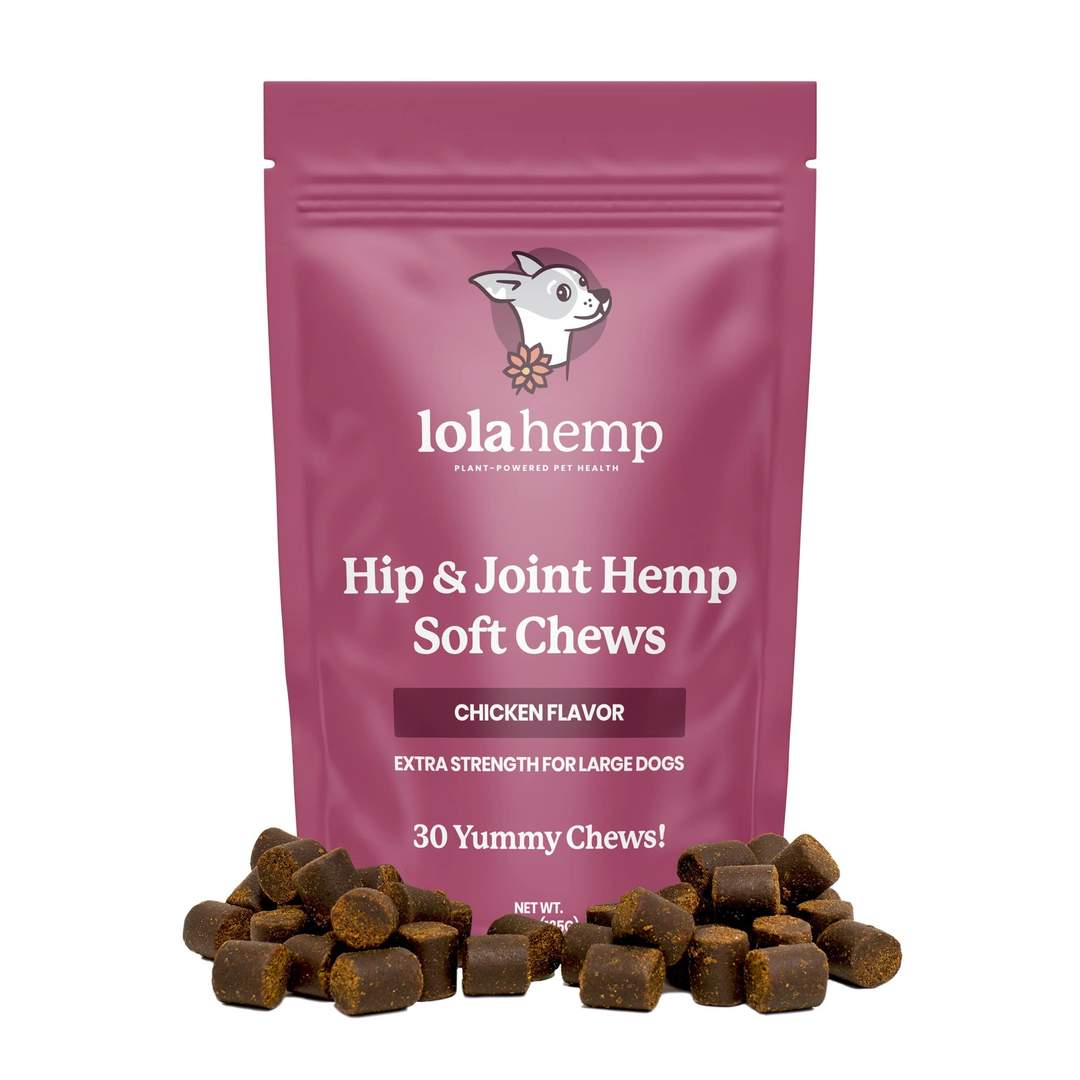Glucosamine can help dogs with joint issues like arthritis or hip dysplasia by supporting cartilage repair, reducing pain, and improving mobility. It's often effective in managing mild to moderate osteoarthritis and can be combined with other supplements like chondroitin or CBD oil for enhanced results.
While glucosamine doesn't cure arthritis, it can alleviate symptoms and slow progression, especially in older or large-breed dogs. This article will cover the benefits, risks, and applications of glucosamine for your dog.
Note that it's always important to discuss new supplements with your veterinarian, especially if your dog is already taking medications. Let's take a look.
Glucosamine is One of The Most Common Hip & Joint Options for Dogs
Glucosamine can help dogs significantly, but the effectiveness and speed of results vary depending on the individual dog, the severity of their joint issues, and the formulation used.
Many dog owners start to see improvements in mobility and a reduction in pain or stiffness within 2 to 4 weeks of starting glucosamine supplementation. However, for dogs with more severe or advanced joint problems, it may take longer, and some may need additional treatments alongside glucosamine for optimal results.
It’s important to note that glucosamine typically helps manage symptoms rather than providing a cure, and consistent use is key to maintaining its benefits over time. Regular follow-up with a vet can help track progress and adjust the treatment as needed.

Using Dog Chews with Glucosamine
One of the easiest and most effective ways to use glucosamine is to find a tasty soft chew for your dog's daily dosage. Chews offer consistent dosage and minimal risk of improper use.
Plus, most are flavored and delicious to dogs. Glucosamine chews are also formulated with additional ingredients intended to support dogs with hip and joint issues.
Glucosamine Can Have Some Side Effects for Dogs
Glucosamine is generally safe for most dogs when dosed appropriately. Most dogs tolerate glucosamine well without any side effects.
When side effects do occur, they may include:
- Vomiting
- Diarrhea
- Increased drinking and increased urination at high doses
Many glucosamine products for dogs are flavored and available in the form of treats or chews, which can make them exceptionally tempting for your dog.
Unfortunately, this also increases the risk of overdosage because your dog may try to ingest many treats at once if left unattended. Always keep glucosamine out of your dog’s reach and do not exceed the recommended daily dose. If your dog ingests more than the recommended daily dose, contact your veterinarian for advice.
How Much Glucosamine for Dogs?
There are hundreds of glucosamine products for dogs available on the market. Glucosamine products are not FDA approved and are not regulated. Formulations, concentrations, and dosing regimens vary widely between products.
In general, it is best to follow your veterinarian’s recommendations for dosing glucosamine for your dog. Your veterinarian can help you choose an appropriate glucosamine product for your dog and will advise you on how best to follow the manufacturer’s instructions for dosing the product.
Conclusion
Glucosamine is a commonly used, potentially effective supplement to help dogs improve their hip & joint health. While it's not a cure for arthritis, hip dysplasia, or other hip issues in dogs, it can help to manage the symptoms.
Glucosamine is often most effective when used in combination with other joint-support ingredients like chondroitin. Lolahemp's Hip & Joint Chews have helped hundreds of dogs with their hip & joint health. If your dog is struggling, we recommend taking a look at Lolahemp's CBD glucosamine hip & joint soft chews.
Glucosamine for Dogs: FAQs
What does glucosamine do for dogs?
Glucosamine supports cartilage repair, reduces stiffness, and helps improve mobility in dogs with arthritis or hip dysplasia.
Is glucosamine safe for dogs?
Yes, glucosamine is generally safe when given in proper doses, though mild digestive side effects like vomiting or diarrhea can occur in rare cases.
How long does it take for glucosamine to work in dogs?
Most dogs show noticeable improvement in mobility and comfort within 2 to 4 weeks of consistent supplementation.
Can dogs overdose on glucosamine?
Overdosing on glucosamine can cause gastrointestinal upset or increased thirst and urination. Keep chews and supplements out of reach.
Should glucosamine be used with other supplements?
Yes, glucosamine is often combined with chondroitin or CBD to enhance joint support and provide greater comfort for dogs with joint issues.

